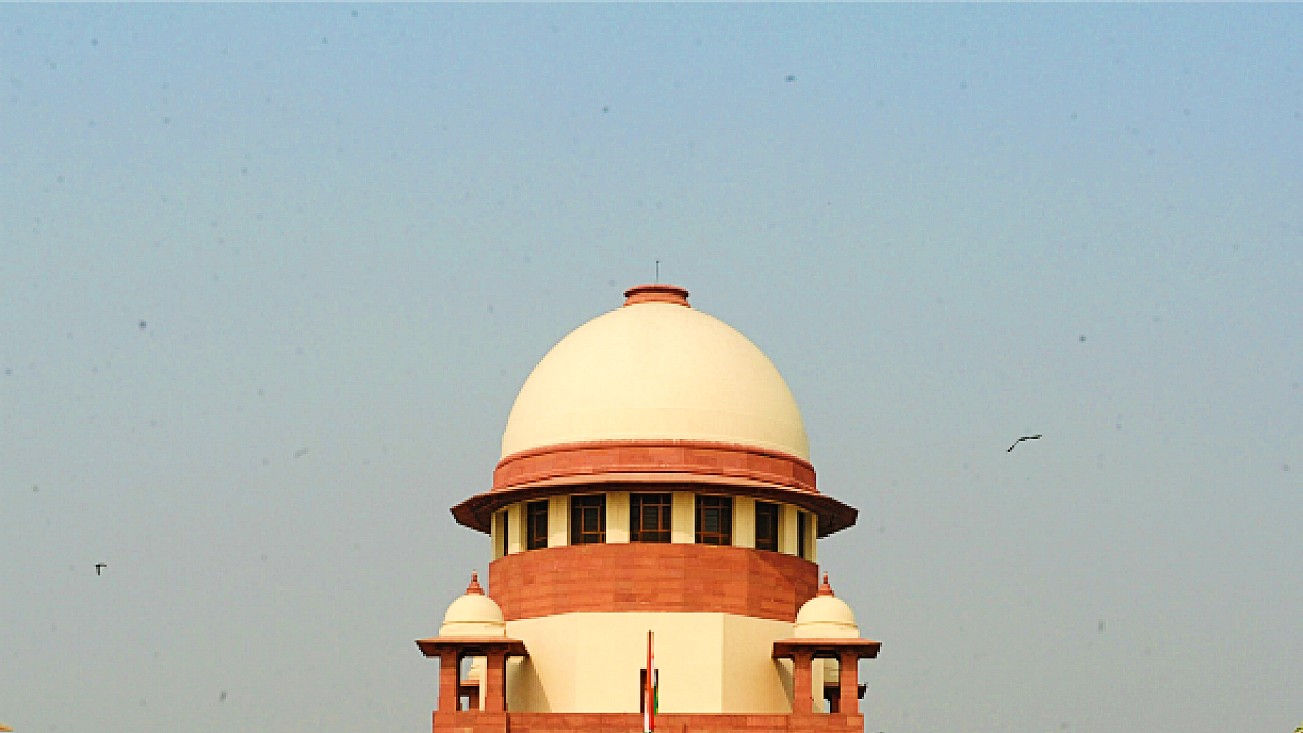Apex Court acquits informants who were made accused under political pressure & convicted for murder 13 years ago

Read Judgment: Madhav vs. State of Madhya Pradesh
Pankaj Bajpai
New Delhi, August 20, 2021: While setting aside the conviction of three persons who were sentenced to life imprisonment for a murder that took place 13 years ago, the Supreme Court came down upon the investigators of the case for acting under political influence to make the informant and her family members into accused while the actual accused were made witnesses.
A Division Bench of Justice Indira Banerjee and Justice V. Ramasubramanian said “… we are clearly of the view that the investigation in this case was carried out … not with the intention of unearthing the truth, but for burying the same fathom deep, for extraneous considerations and that it was designed to turn the informant and her family members as the accused and allow the real culprits named in the FIR to escape”.
The Bench also observed that “both the Sessions Court as well as the High Court have completely overlooked some of the important admissions made” by two prosecution witnesses and both the courts “have not even taken into account the normal human conduct”.
The case of the prosecution was that the three accused, in furtherance of the common intention of all, attacked one Pappu alias Nand Kishore with a knife and lathis resulting in his death and that, thereafter, with the intention of screening the offenders from legal punishment, took the victim to the Government Hospital and sent a false information to the Police as though the murderous assault on the victim was committed by two other persons by name Ruia and Kailash.
The Apex Court observed that it was unbelievable that one of the persons who killed the victim, in the presence of witnesses, took the body of the victim to the hospital in an autorickshaw. It said normal human behaviour in such circumstances will be either to flee the place of occurrence or to go to the police station to surrender, except in cases where they are intelligent and seasoned criminals, which was not the case.
“Right from the beginning there has been an attempt on the part of the prosecution to shield the culprits named in the first FIR, on account of political pressure, as admitted by PW-14 and corroborated by PW-9, whom the prosecution considered to be a star witness. Unfortunately, both the Sessions Court and the High Court completely overlooked these aspects,” the Bench said.
Apart from the fact that the witnesses in whose presence the seizure of the weapons was allegedly effected had turned hostile, there was nothing on record to show that the blood stains said to have been present in those weapons matched with the blood of the deceased, added the Bench.
“Unfortunately, the High Court proceeded on a wrong premise that there was scientific evidence to point to the guilt of the accused, merely because as per Exhibit P25 (FSL Report), the knife and lathis said to have been seized by the police, contained stains of human blood. The prosecution has not established either through the report of FSL or otherwise, that the blood stains contained in the knife and lathis were that of the deceased,” found the Apex Court.
“The fact that right from the beginning, the IO proceeded to favour those two persons (Kailash and Ruia) originally named as accused in the FIR, is also borne out by the statement made by him in chief examination that even on the very first day, he recorded the statements of several witnesses including Kailash and Ruia. It means that he started with a predetermination that the informant, her husband and her brother were the culprits and the original accused were innocent,” found the Division Bench.
The reason why the IO did not even suspect the role of Ruia and Kailash Yadav in the commission of the crime remains unexplained, added the Bench.
“We are conscious of the fact that at times persons who commit a crime, themselves make/lodge the first information, so as to create an alibi of innocence. But even in such cases the investigation would normally proceed first against those named as accused in the FIR and, thereafter, the needle of suspicion may turn against the informant himself”, the bench said.
The Top Court, therefore, allowed the appeal of two of the accused challenging their conviction and the sentence of life imprisonment and a fine of Rs.2500/- imposed upon them by the Ist Additional Sessions Judge, Sagar, M.P., and confirmed by the Division Bench of the High Court of Madhya Pradesh at Jabalpur.
Interestingly, the Supreme Court also set aside the conviction and sentence of the third accused in the case, even though he had not sought relief from the Top Court.
“This is not a case where we have proceeded on the basis of individual overt acts on the part of A-2 and A-3 (the appellants-herein) to conclude that they are entitled to acquittal. This is a case where we have disbelieved, in entirety, the story of the prosecution. Therefore, to deny the benefit of the said conclusion to A-1 (third accused) merely on the ground of a technicality that he is not on appeal would be to close our eyes to a gross injustice, especially when we are empowered under Article 142 to do complete justice,” the Bench said.
Sign up for our weekly newsletter to stay up to date on our product, events featured blog, special offer and all of the exciting things that take place here at Legitquest.




Add a Comment